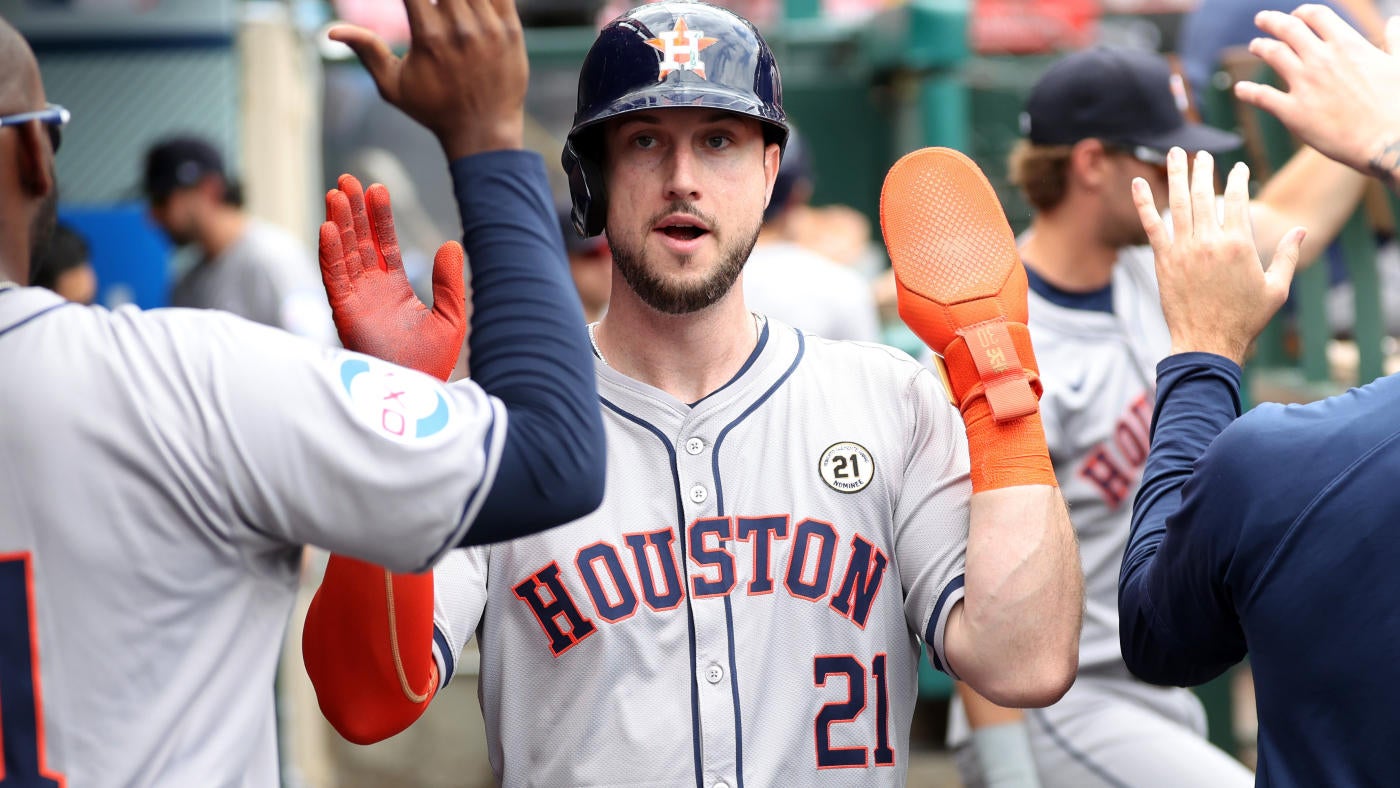
It’s fair to say this one rises to the level of blockbuster. Anytime a genuine first-round Fantasy talent is on the move, that’s the case. But what it means for Kyle Tucker’s own Fantasy value is minimal.
Sure, he’s switching leagues, which matters to the vanishing number of AL- and NL-only players out there. Sure, he’s going to a venue that rates worse statistically, but it likely won’t make a difference to a hitter of Tucker’s stature. Statcast estimates that he’d have 127 career home runs if he played every game at Wrigley Field vs. the 125 he actually has. Doesn’t sound like a problem to me.
So rather than the headliner, it’s the downstream effects of this deal that matter most for Fantasy. For starters, you may wonder what happens to Pete Crow-Armstrong, a recently graduated prospect who really hit his stride over his final 34 games, batting .292 (35 for 120) with five home runs, four stolen bases, and an .801 OPS (and frankly, those numbers understate his base-stealing prowess). In theory, the Tucker acquisition squeezes him out of the outfield picture.
I wouldn’t worry about it, though. The Yankees were reportedly in the running for Tucker as well, with Cody Bellinger being floated as a fallback option, and seeing how perfect of a fit he’d be at Yankee Stadium, it’s almost a fait accompli that he winds up there.
Speaking of perfect fits, let’s talk about the players the Astros are getting back in this deal, namely Isaac Paredes. You may remember us lamenting the Cubs’ acquisition of him at the trade deadline, believing that the move from Tropicana Field to Wrigley Field would essentially tank his value, and indeed, he wound up hitting .223 with a .633 OPS for his new team. He had a home run rate of one every 71 plate appearances for the Cubs as compared to one every 21 plate appearances during his 2 1/2 years with the Rays.
The reason for this dip is because Paredes’ entire offensive approach is to pull the ball over the shallowest part of the left field fence. As you can see from the spray chart above, he has a real talent for it, allowing him to masquerade as a power hitter even though his exit velocity readings are among the worst in all of baseball. It works out well in a venue that’s only 315 feet down the line, as Tropicana Field was, but the left field foul pole at Wrigley Field is 355 feet away from home plate.
What about the place Paredes will soon be calling home, Minute Maid Park?
That’s right. It’s also 315 feet down the left-field line. It’s also 362 feet in the left-field gap as compared to 370 for Tropicana Field. You might even say, then, it’s the best possible venue for a hitter with Paredes’ profile, and indeed, Statcast suggests he’d have 75 home runs over the last three years if he played every game there vs. the 70 he actually hit. That section of left field is known as the Crawford Boxes, and Alex Bregman, another third baseman whose power has played beyond his exit velocities, is famous for wearing them out during his time in Houston. With Bregman expected to depart via free agency, Paredes gives the Astros a capable (and surprisingly analogous) replacement.
So, who replaces Paredes for the Cubs? That’s the other big winner in this deal: top prospect Matt Shaw, their first-round pick in 2023, who has made quick work of the minors. He started slowly last year but wound up hitting .318 with 18 homers, 21 steals, and a .959 OPS over his final 80 games, the last 35 of which came at Triple-A. He’ll have to earn the job this spring, but I suspect that’s the Cubs’ plan for third base, making Shaw an early favorite for NL Rookie of the Year.
The Astros are, of course, getting back more than Paredes in this deal, with the other pieces being right-hander Hayden Wesneski and third base prospect Cam Smith. Neither will be of immediate impact in Fantasy, but Smith, the Cubs’ first-round pick this past season, has a particularly bright future, having hit .313 (36 for 115) with seven homers and a 1.004 OPS across three levels last season. He isn’t particularly strikeout-prone for as much high-quality contact as he makes and projects to hit for both average and power.
So, to sum up, stock even for Tucker, who remains my fourth-ranked outfielder. Stock down for Crow-Armstrong in the short term, but I suspect a Bellinger trade will remedy that. Stock way up for Paredes, who goes from 22 to 13 in my third base rankings, landing between Mark Vientos and Eugenio Suarez. Stock also way up for Shaw, who will likely be drafted in all leagues with a chance of providing five-category production as a rookie.

